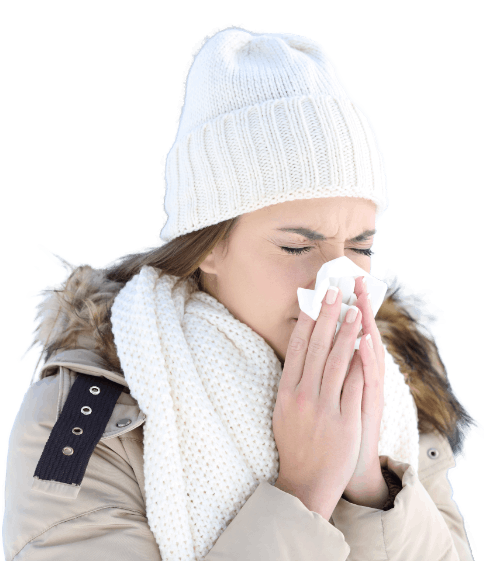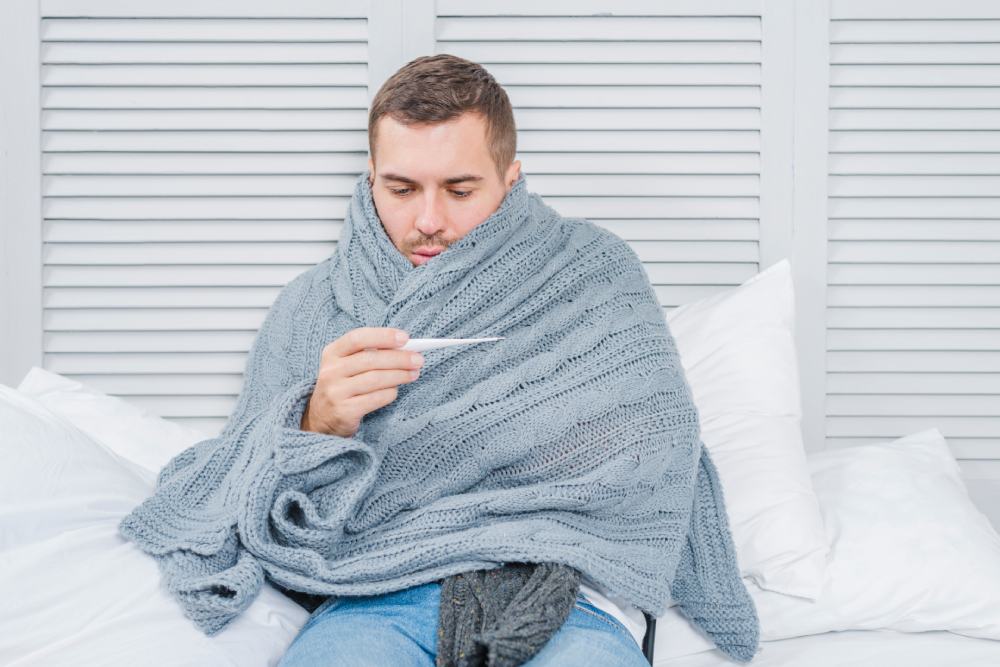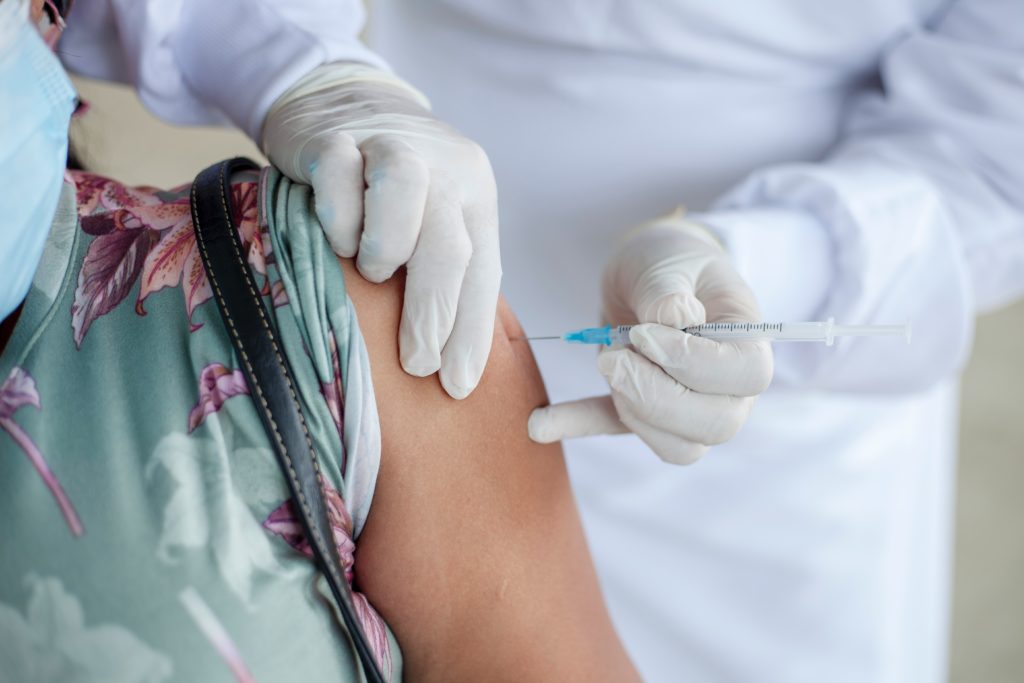Covid vs RSV vs Flu
What are the differences?

What are the differences?


A respiratory tract infection is an infection that targets the lungs, airways, sinuses and throat. Respiratory infections can occur year-round but are most commonly seen in the colder winter months when people tend to spend more of their time indoors. Knowing the common symptoms and differences between related illnesses can help in the prevention and spread of these illnesses. Below you can find more information that will help you in this upcoming flu season.

The flu, COVID-19, and respiratory syncytial virus (RSV) are all highly contagious respiratory infections caused by viruses: The flu by influenza virus, COVID-19 by SARS-CoV-2 virus, and RSV by respiratory syncytial virus. It is possible for a person to be infected with multiple viruses at the same time.
According to the CDC, the flu and COVID-19 share very similar symptoms, and it might be hard to tell which of the two you have. The table below shows the symptoms of each.
| RSV | 4-6 Days after Exposure |
|---|---|
| Flu | 2 Days after Exposure |
| Covid-19 | 3-4 Days after Exposure |
| RSV | Sometimes |
|---|---|
| Flu | Common |
| Covid-19 | Sometimes |
| RSV | Common |
|---|---|
| Flu | Common |
| Covid-19 | Common |
| RSV | Rare |
|---|---|
| Flu | Sometimes* |
| Covid-19 | Sometimes |
If you are experiencing symptoms and would like an easy way to determine if you are infected with Covid-19, an at-home kit may be an option for you.
| RSV | Sometimes |
|---|---|
| Flu | Common |
| Covid-19 | Common |
| RSV | Sometimes |
|---|---|
| Flu | Common |
| Covid-19 | Common |
| RSV | Rare |
|---|---|
| Flu | Rare |
| Covid-19 | Sometimes |
| RSV | Sometimes** |
|---|---|
| Flu | Rare |
| Covid-19 | Common |
If you are experiencing symptoms and would like an easy way to determine if you are infected with Covid-19, an at-home kit may be an option for you.
| RSV | Common |
|---|---|
| Flu | Common |
| Covid-19 | Common |
| RSV | Sometimes |
|---|---|
| Flu | Sometimes |
| Covid-19 | Sometimes |
| RSV | Sometimes |
|---|---|
| Flu | Sometimes |
| Covid-19 | Common |
| RSV | Sometimes |
|---|---|
| Flu | Common |
| Covid-19 | Common |
|
Signs & Symptoms
|
RSV
|
Flu
|
Covid-19
|
|---|---|---|---|
|
|
4-6 Days after exposure
|
2 Days after exposure
|
3-4 Days after exposure
|
|
|
Sometimes
|
Common
|
Sometimes
|
|
|
Common
|
Common
|
Common
|
|
|
Rare
|
Sometimes*
|
Sometimes
|
|
|
Sometimes
|
Common
|
Common
|
|
|
Sometimes
|
Common
|
Common
|
|
|
Rare
|
Rare
|
Sometimes
|
|
|
Sometimes**
|
Rare
|
Common
|
|
|
Common
|
Common
|
Common
|
|
|
Sometimes
|
Sometimes
|
Sometimes
|
|
|
Sometimes
|
Sometimes
|
Common
|
|
|
Sometimes
|
Common
|
Common
|
Notes: * Diarrhea from flu is more common in children.
** Shortness of breath from RSV is more common in infants and young children.
Sources: Centers for Disease Control and Prevention, GoodRx, Kaiser Permanente
If you are experiencing symptoms and would like an easy way to determine if you are infected with Covid-19, an at-home kit may be an option for you.
You can drastically decrease your odds of contracting the flu by getting a flu shot. There are many locations to get the vaccine including from your local provider, pharmacies, and grocery stores. The flu shot you get each year is designed to protect against that year’s anticipated most common strains of flu.
Engaging in proper hygiene practices with your baby can reduce the risk of infections including RSV. Avoid placing your baby in contact with anyone who exhibits symptoms of the common cold, wash your hands regularly, and don’t let anyone smoke around your baby.
You can reduce the risk of contracting COVID-19 by getting vaccinated and following CDC guidelines. It’s always important to wash or sanitize your hands regularly.


Viruses are significantly different from bacteria, and treatments such as antibiotics won’t work on viral infections. Your body responds to infections like SARS-CoV-2 by producing antibodies, either on its own or with the help of a vaccine. Antibodies are proteins that your immune system designs to target specific infections. There are currently multiple FDA-authorized vaccines for viruses like SARS-CoV-2, but the best way to take care of yourself and others is knowing what your symptoms are from. A COVID-19 test can help determine if your symptoms are caused by SARS-CoV-2.
Input your search keywords and press Enter.